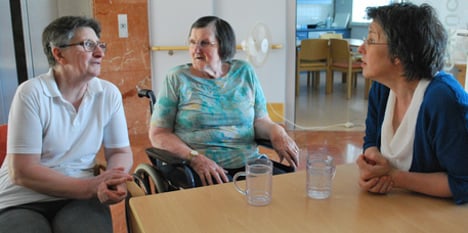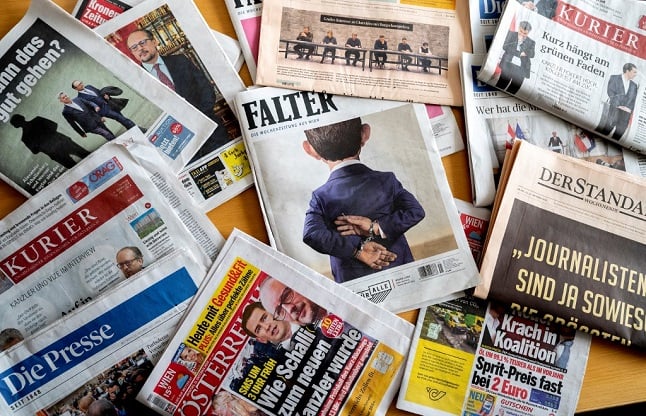According to Petrik, politicians know "far too little" about the lives of ordinary people.
Determined to learn more first hand, the 50-year-old gave up her only paid job as a state majority leader, and with it, her €21,000 annual salary.
The single mother of three will now work as an intern on trainee wages in various jobs until the end of the year, before returning to politics.
Petrik will run for election to the state parliament for the first time in 2015.
"The more perspectives I have, the better my political work will be," Petrik said. "I have not had a day of regrets."
When asked what value this experience has added to her political work, Petrik gives an example. She now sees the hourly rate paid to carers in a nursing home through different eyes and says they will not close when she works on legislation in parliament
Since mid-July, Petrik has been working in a laundry company in Oberwart, receiving minimum wage.
"The first day was by far the most difficult," she said. "Bras are glued together in the factory, for an hourly wage of €6.86. I almost always had to stand, the air is stuffy and the machines are noisy."
Petrik has promised the factory owners she is not there as a whistleblower. Overall, her employers and colleagues seem pleased she "is not just there for a photo".
Her bosses at the supermarket gave their new intern a "very good report".

Petrik is writing a blog about her experiences. Photo: http://burgenland.gruene.at
Petrik defends herself against accusations that her practical year is a political gimmick and intends to continue her work in other spheres when she returns to political life.
She candidly admits that by being seen in the workplace and able to speak directly with her electorate, she can address "politics from below".
But political consultant Thomas Hofer, thinks Petrik's project is "staged", particularly given the timing – "three quarters of a year before the state election."
Hofer doubts that internships are the perfect fix for political frustration and cannot see other politicians doing the same thing.
Petrik dismissed his criticism. "One could not demand this from others, but I'm convinced it is a good thing," she said, adding she felt she had "great moral support" from the party.
Asked if she could imagine making one of her internships into a permanent job if she doesn't get into the state parliament, Petrik replied: "If I don't get in then I will have to rethink.
But I've talked with the store manager and colleagues at the supermarket and they've agreed "that I can come back when politics gets on my nerves."
Regina Petrik comes from an ÖVP family. She moved to Burgenland for family reasons and at the end of 2010 the trained teacher joined the Greens as a state majority leader. Since 2012 she has been their spokeswoman.



 Please whitelist us to continue reading.
Please whitelist us to continue reading.
Member comments